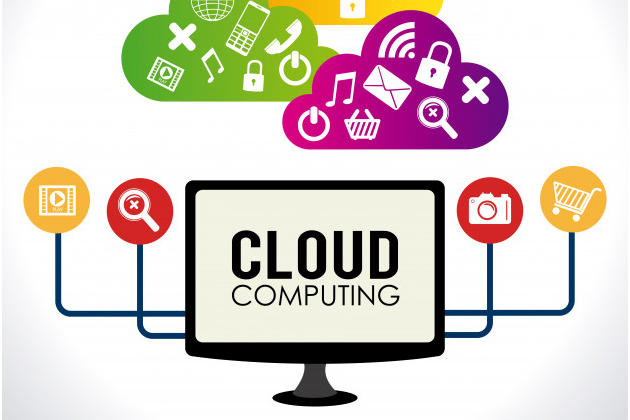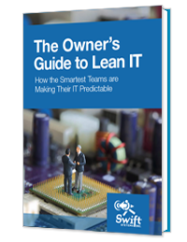
Types of Cloud Computing
Cloud computing is used by different technology companies to access IT infrastructure, software, and hardware resources that are stored in high-end server computers and networks. There are different types of cloud computing solutions that are available today and these will be discussed below.
Cloud computing allows users to access software or hardware remotely via the cloud or the internet. If your organization is utilizing specialized applications without having to set up any server or buy hardware or software to run them, then you are probably using a cloud application. Cloud computing services can help businesses to be more efficient and save on software and hardware that are important for different operations.
Differnet Types of Cloud Computing
- Infrastructure as a Service (IaaS)
- Platform as a Service (PaaS)
- Software as a Service (SaaS)
- Recovery as a Service (RaaS)
1: Infrastructure as a Service (IaaS)
IaaS is a form of cloud solution that delivers pre-installed and configured hardware or software through a virtualized interface. In this model, a cloud provider hosts the infrastructure components usually available in an on-premises data center. This may include servers, storage and networking hardware, and virtualization or hypervisor layer.
Infrastructure as a Service solution gives customers access to high-quality IT resources and infrastructures. It can reduce the cost of ownership and capital expenses as users can just pay for the service they want. They can also scale up and down according to their preference. Some companies that offer IaaS are Google, IBM, Rackspace Cloud Servers, Amazon EC2, and Verizon.
2: Platform as a Service (PaaS)
Platform as a Service is a category of cloud computing that provides a computing platform and solution stack, which allows developers to build, test, and deploy applications and services over the internet.
PaaS is accessed by users through their web browsers. They often come with a graphic user interface, run-time system libraries, programming languages, or an operating system.
Some examples of PaaS solutions include Google App Engine, Rackspace Cloud Sites, and Microsoft Azure.
By using PaaS solutions, users develop a sense of community. People involved in creating cloud applications in PaaS environments usually build a strong bond, helping other development teams along the way. Another benefit of using this is it does not require software update or upgrade as the PaaS provider handles all patches and routine software maintenance. Lastly, with PaaS’ simplified deployment, the development team can focus on developing the cloud application without having to stress about the testing and deployment infrastructure.
3: Software as a Service (SaaS)
SaaS is probably the most common type of cloud computing solution. In this model, third-party providers host fully functional web-based applications and make them available to customers on demand.
These applications are usually directed to business users and may include offerings such as web conferencing, email, time management, and project tracking, among others. The payment terms applied for SaaS solutions are subscription-based, pay-for-use, or free. Companies like Salesforce, Microsoft, SAP, Adobe, and Google offer SaaS solutions. Organizations use SaaS as they can be accessed from any location. It also offers bundled maintenance and support, eliminating infrastructure concerns.
4: Recovery as a Service (RaaS)
RaaS is a process of disaster recovery that uses cloud technology. It offers a more affordable solution as compared to traditional continuity options. RaaS backups the whole environment and not just the data. This includes entire data centers, servers (OS, applications, configuration, and data), as well as files and databases. Using RaaS solutions enables businesses to minimize the impact of downtime when disasters happen. Examples of RaaS providers are Windstream Business, Geminates, and scaled.
Deploying RaaS Solutions in your organization can prevent temporary or permanent loss of critical company data and physical infrastructure. It also ensures rapid data recovery in a cost-efficient way.
Conclusion
Cloud computing solutions offer an abundance of benefits to users. They are able to improve their efficiency while reducing overhead costs. With that said, it is essential to know that many companies use cloud services nowadays. The type of cloud computing solutions they use may vary depending on their priorities, areas of expertise, and business processes.
Cloud Computing Solutions: Swift Systems
Swift Systems can help businesses like yours adopt cloud computing solutions. Our team can implement the cloud into your existing system while ensuring the safety of your files. By working with us, we can help you increase your company’s efficiency and productivity without the need for high capital expenses.
For more information about cloud-based computing and its benefits, you may call our knowledgeable IT staff today. Allow us to deliver the best-hosted solution to your business.

IT systems are foundational to modern businesses. Too often, that foundation is unsteady. Unpredictable outages, insecure networks, and unreliable performance from mission-critical systems can jeopardize your entire business.
There’s a better way. Learn how.
Get in touch with us for a free consultation with one of our technical experts. We’ll review your current systems, assess your needs, and identify the coverage options to best meet them.
Get in touch with us by phone:


 (4 votes, average: 4.00 out of 5)
(4 votes, average: 4.00 out of 5)